Science or Myth: A False Dichotomy
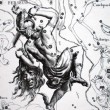
“Reality is everything that exists. That sounds straightforward, doesn’t it? Actually it isn’t.” Thus begins Professor Richard Dawkins’ recent book, The Magic of Reality. In order to explain reality, Professor Dawkins takes us on a tour of modern science by contrasting its explanations with those we find in myths and fables: “These are the stories we all remember with fondness from our childhood, and many of us still enjoy when served up in a traditional Christmas... Read More
Scientific Geniuses and Their Jesuit Collaborators
by Andrew Kassebaum
Filed under Christianity and Science
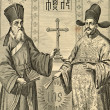
Herbert Butterfield, the influential twentieth-century historian, identified the Scientific Revolution as “one of the great episodes in human history,” which, along with the rise of the empires of Alexander the Great and ancient Rome, deserves a place “amongst the epic adventures that have helped to make the human race what it is.”1 Numerous Catholic scientists, both laymen and churchmen alike, made valuable contributions to science before, during, and after the Scientific Revolution. The... Read More
The Stillbirth of Science in Arabia
by Dr. Stacy Trasancos
Filed under Christianity and Science
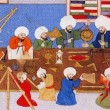
NOTE: Today we wrap up our weekly series of essays by Dr. Stacy Trasancos on the "stillbirths" of science. They're based on Fr. Stanley L. Jaki's research into the theological history of science in the ancient cultures of Egypt, China, India, Babylon, Greece, and Arabia. See past articles here. The last culture to be examined is that of the Muslims. Although theirs was a monotheistic view, it was not a Christological or Trinitarian view, which left it vulnerable to a monotheism... Read More
The Stillbirth of Science in Greece
by Dr. Stacy Trasancos
Filed under Christianity and Science
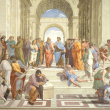
NOTE: Today we continue our weekly series of essays by Dr. Stacy Trasancos on the "stillbirths" of science. They're based on Fr. Stanley L. Jaki's research into the theological history of science in the ancient cultures of Egypt, China, India, Babylon, Greece, and Arabia. See past articles here. Like other great civilizations, the contributions and skill of the ancient Greeks cannot be dismissed. Probably more has been written about Greek intellectual history than any other ancient... Read More
The Stillbirth of Science in Babylon
by Dr. Stacy Trasancos
Filed under Christianity and Science
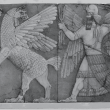
NOTE: Today we continue our weekly series of essays by Dr. Stacy Trasancos on the "stillbirths" of science. They're based on Fr. Stanley L. Jaki's research into the theological history of science in the ancient cultures of Egypt, China, India, Babylon, Greece, and Arabia. See past articles here. In The Savior of Science, Jaki mentioned the history of science among cultures that communicated and developed in succession–Babylon, Greece, and Arabia. Knowledge was transmitted to... Read More
The Stillbirth of Science in India
by Dr. Stacy Trasancos
Filed under Christianity and Science
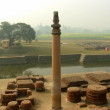
NOTE: Today we continue our weekly series of essays by Dr. Stacy Trasancos on the "stillbirths" of science. They're based on Fr. Stanley L. Jaki's research into the theological history of science in the ancient cultures of Egypt, China, India, Babylon, Greece, and Arabia. See past articles here. The decimal system and notation developed in ancient India between the fourth and seventh centuries represents “the most noteworthy single contribution of ancient India to science and... Read More
The Stillbirth of Science in China
by Dr. Stacy Trasancos
Filed under Christianity and Science
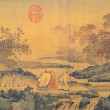
NOTE: Today we're continuing our weekly series of essays by Dr. Stacy Trasancos on the "stillbirths" of science. They're based on Fr. Stanley L. Jaki's research into the theological history of science in the ancient cultures of Egypt, China, India, Babylon, Greece, and Arabia. See past articles here. There is so much written about China’s rich and illustrious past that no case could ever be made—from the Shang Dynasty (1523–1028 B.C.) to the Ch’ing Dynasty (A.D. 1644–1912)—that... Read More
The Stillbirth of Science in Ancient Egypt
by Dr. Stacy Trasancos
Filed under Christianity and Science
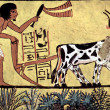
NOTE: For the next six Fridays, Strange Notions will present a series of essays by Dr. Stacy Trasancos on the "stillbirths" of science. They're based on Fr. Stanley L. Jaki's research into the theological history of science in the ancient cultures of Egypt, China, India, Babylon, Greece, and Arabia. The first stillbirth Fr. Stanley L. Jaki discussed in the Savior of Science is the stillbirth of science in Egypt, “an Egypt to be buried in the sand.” In ancient Egypt (from about... Read More
How Catholic Missionaries Brought Science to China
by Andrew Kassebaum
Filed under Christianity and Science
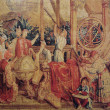
In late December 1668, in a contest held at the Chinese Bureau of Astronomy, the Jesuit Ferdinand Verbiest (1623-1688) correctly predicted the length of a shadow cast by a vertical rod. The Kangxi Emperor was impressed. But he challenged Verbiest to two additional tests: the prediction of the exact position of the sun and planets on a given day and the timing of an approaching lunar eclipse. Verbiest successfully completed the final two tests, and, in the process, showed that the Chinese... Read More
Molecules and Mourning

Materialism has always had a difficult time dealing with death, because it has to claim that death is not a big deal. If there is nothing more to life than the matter of the body, once the body dies there is nothing left to “experience” death. The ancient atomists were explicit in this claim, with Epicurus stating: "Death, therefore, the most awful of evils, is nothing to us, seeing that, when we are, death is not come, and, when death is come, we are not." While it is debatable how... Read More






